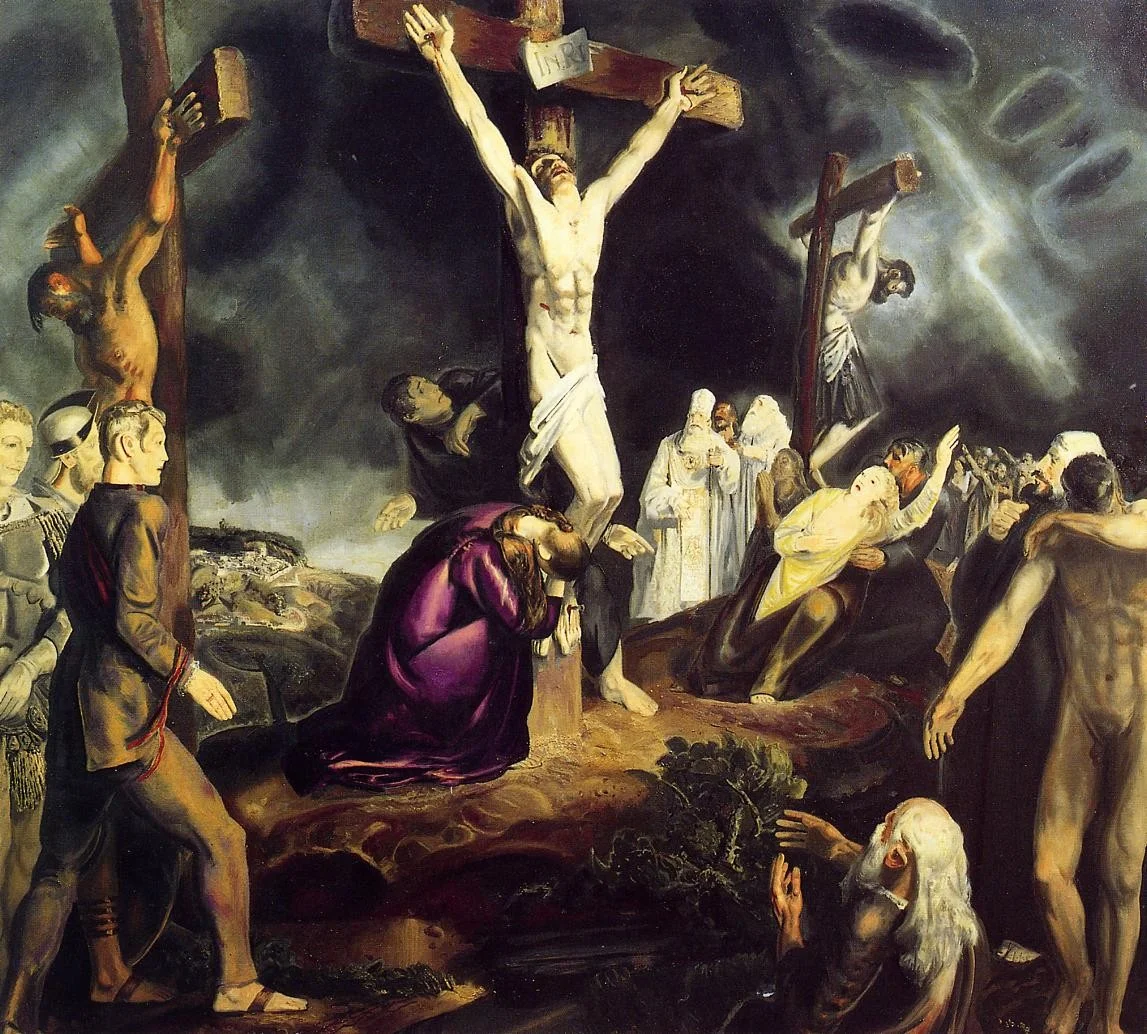Maundy Thursday
A sermon preached for Maundy Thursday at St. Gregory's Episcopal Church, 4/13/17; 1 Corinthians 11:23-26; John 13:1-17, 31b-35.
The Holy Week liturgies essentially preach themselves, and it’s my own sense that too many words can actually take away from their power. But I’ll risk it, and offer you a few words anyway, hopefully that will focus and not distract from what we’re about to do. The thing that I find myself coming back to lately as we gather together as church—and particularly as we gather tonight—is that Jesus didn’t leave us with a theology, systematic or otherwise. Instead, he left us with stories and sacraments and an embodied model of servanthood.
Stories that are meant to transform the way we think, that are meant to break open our hearts—the parable of the prodigal son or the lost sheep or the good Samaritan. Sacraments—things that put us in touch with our own earthiness, our physicality, with this-ness, here-ness, now-ness; bread that we eat, wine that we drink, water that we wash ourselves with. Real things that we can touch and feel and that nourish us and clean us. He leaves us with stories and sacraments and above all, with his life, an embodied, lived out example of servanthood and surrender and humility, forgiving, healing, loving, embracing.
And tonight, this very night, knowing that he is about to die, he sums all of this up with a shared meal and with the washing of feet. He passes bread and wine around the table and says “Do this to remember me.” Nora Gallagher, an Episcopalian author, says that she doesn’t think Jesus said this because he wanted everyone to remember him, to keep thinking about him, like a celebrity who’s trying to stay in the news.
“Instead,” she writes, “I think Jesus wanted his disciples and everyone who came after him to remember what they had together. What they made together. What it meant to be together. How the things he wanted them to do could not be done alone. How the things he did could not have been done without them. ‘Do this to remember how we healed the sick, and cured the lepers and relieved those possessed by demons. Do this to remember how we were a band of men and women who traveled together and ate together and were a company of friends.’”
Do this to re-member me. And then, having shared the meal, John tells us that “Jesus, knowing that […] he had come from God and was going to God, got up from the table, took off his outer robe, and tied a towel around himself.” And he washed his own students’ feet, a great act of humility, in his culture as much as in ours.
In John’s Gospel, we’re not even given the scene of the meal, only the foot-washing. Gail Ramshaw, a Lutheran liturgical scholar, takes note of this and writes, “In John’s Gospel, […] Jesus doesn’t eat the joyous Passover meal with his disciples. Rather, to show the sacrament of the Body of Christ, Jesus washes their feet. Through this primordial human use of water—we wash the newborn, we wash our hands, we wash the dying and the dead—the Church has seen that Christ’s body is no longer only the flesh of a person named Jesus, and not only in sanctified bread. The body of our God is now manifest in the feet of our community, toenail fungus and bunions notwithstanding, and we honor that God by kneeling, not before some glorious image of God, but before one another, towel in hand.”
Jesus is showing us where we are to look for God if we are to be his students. And then he sums up everything, his whole life, all their time together, with those simplest of words: “Just as I have loved you, you also should love one another. By this everyone will know that you are my disciples, if you have love for one another.”
Wash and feed and love one another. Do this to remember me—this is how I will be honored. Not with systematic theology, not with beautifully-crafted liturgy—as wonderful as both of those things are—but with actions and love rooted in a humble and open heart.
Very shortly, as Christians have done throughout the ages, we, once more, will share in the washing and in the meal, remembering the story, the sacrament, and the life of servanthood. May each of these be places where we meet God—in hands and feet and food. For it is in these acts of loving one another, not only here, but carried out beyond this place into the world, that we will come to know ourselves as his disciples. May it be so. May we be love. May he be remembered.
Amen.



